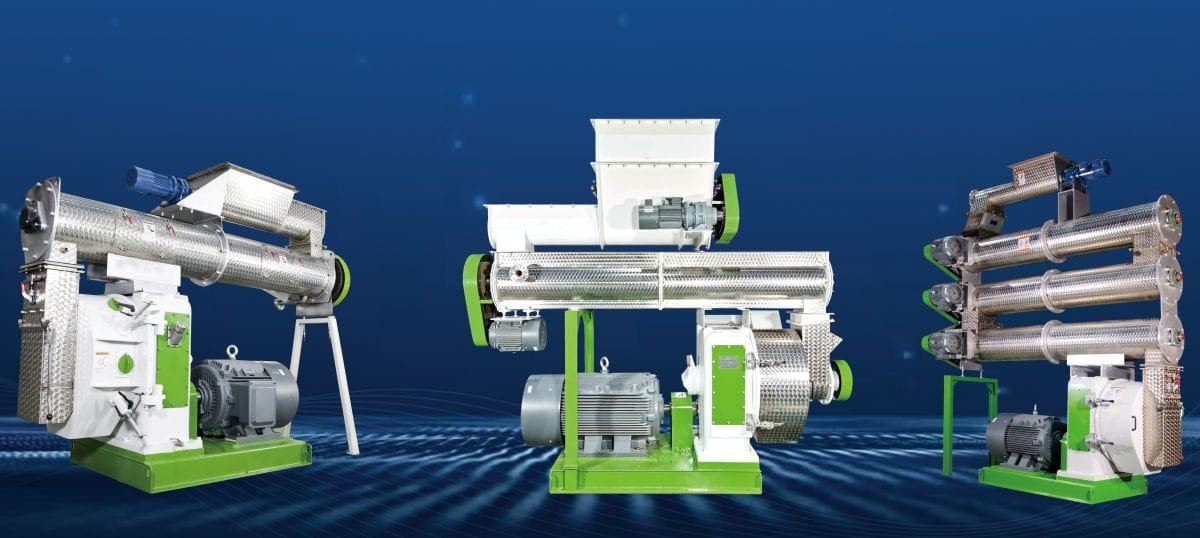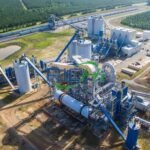In the ever-evolving landscape of industrial processes and applications, bentonite granules have emerged as a versatile and indispensable material. Renowned for their unique properties, such as high swelling capacity, excellent adsorption capabilities, and chemical stability, bentonite granules find applications across a wide range of industries, including construction, agriculture, environmental remediation, and more. To meet the growing demand for this valuable resource, bentonite granules making machines have become an essential piece of equipment, enabling efficient and consistent production of high-quality granules.
The Versatility of Bentonite Granules
Bentonite is a naturally occurring clay mineral composed primarily of montmorillonite, a member of the smectite group. Its unique properties stem from its layered structure and high cation exchange capacity, making it an invaluable material for various industrial applications. Some of the key applications of bentonite granules include:
- Construction Industry: Bentonite granules are widely used in civil engineering projects, such as drilling fluids for horizontal directional drilling, waterproofing and sealing applications, and as a soil stabilizer.
- Environmental Remediation: The adsorptive properties of bentonite granules make them effective in removing contaminants from water and soil, making them valuable in environmental cleanup efforts.
- Agriculture: Bentonite granules are used as soil conditioners, improving water retention and nutrient availability for plants, as well as in animal feed as a binder and anti-caking agent.
- Foundry Industry: The high thermal stability and binding properties of bentonite granules make them essential in the production of foundry sand for metal casting processes.
- Pharmaceutical and Cosmetic Industries: Bentonite granules are used as excipients in pharmaceutical formulations and as thickening agents and absorbents in cosmetic products.
The Role of Bentonite Granules Making Machines
Bentonite granules making machines play a crucial role in transforming raw bentonite clay into uniform, high-quality granules suitable for various industrial applications. These specialized machines are designed to handle the unique properties of bentonite and ensure efficient and consistent granule production.The typical workflow of a bentonite granules making machine includes the following key stages:
- Raw Material Handling and Preparation: The first step involves the collection and preprocessing of raw bentonite clay. This may include drying, crushing, or size reduction to ensure optimal granule production.
- Grinding and Sizing: The preprocessed bentonite is fed into a grinding mill, where it is reduced to a consistent particle size, typically between 0.1-2 mm. This step is crucial for achieving uniform granule quality and efficient compression during the granulation process.
- Conditioning: The ground bentonite material is conditioned with water or other additives to adjust its moisture content and improve its binding properties. This conditioning process facilitates the formation of stable granules during the granulation process.
- Granulation: The conditioned bentonite material is fed into the granulator, where it is compressed and extruded through small die holes by rotating rollers or a ring die. The resulting granules are cut to the desired size by knives or a die, ensuring a consistent shape and size.
- Drying: After granulation, the bentonite granules are dried to remove excess moisture and ensure their structural integrity. This step is crucial for ensuring the durability and quality of the final product.
- Screening and Packaging: The dried bentonite granules are screened to remove any fines or oversized particles, ensuring a consistent product. Finally, the granules are packaged in bags or bulk containers for storage and distribution.
Related post: https://www.richipelletmachine.com/cat-litter-pellet-machine/
Factors Influencing Granule Quality and Efficiency
The quality and efficiency of bentonite granules produced by these machines are influenced by several critical factors, including:
- Raw Material Quality: The composition and purity of the raw bentonite clay significantly impact the granule quality and production efficiency. Consistent and high-quality raw materials are essential for optimal performance.
- Particle Size Distribution: Achieving a uniform particle size distribution through proper grinding is crucial for efficient granulation and granule durability.
- Conditioning Parameters: The moisture content, additives, and conditioning time play a vital role in determining granule quality, durability, and energy consumption during the granulation process.
- Die Specifications: The size, shape, and compression ratio of the die holes in the granulator affect the physical characteristics and density of the granules, as well as the energy requirements for the granulation process.
- Drying Efficiency: Efficient drying is necessary to prevent granule degradation and maintain structural integrity, ensuring a consistent and high-quality product.
- Maintenance and Optimization: Regular maintenance and optimization of the bentonite granules making machine, including die replacement, roller adjustment, and process parameter tuning, are essential for maintaining optimal performance and efficiency.
Advancements and Future Outlook
The bentonite granules making machine industry is continuously evolving, driven by the need for increased efficiency, automation, and sustainability. Advancements in areas such as process control, energy optimization, and alternative raw materials are shaping the future of bentonite granule production.
One notable development is the integration of advanced technologies, such as the Internet of Things (IoT) and machine learning, into bentonite granules making machines. These technologies enable real-time monitoring, predictive maintenance, and optimized process control, further enhancing the performance and efficiency of the machinery.Additionally, the industry is exploring the use of alternative raw materials and additives to enhance the properties and performance of bentonite granules for specific applications. These developments can lead to the creation of specialized granules tailored to meet the unique requirements of various industries.
As the global demand for bentonite granules continues to rise across diverse industries, the role of bentonite granules making machines will become increasingly crucial in meeting the needs of manufacturers and end-users. With ongoing research and innovation, these machines will continue to evolve, ensuring the efficient and consistent production of high-quality bentonite granules, contributing to a more sustainable and efficient industrial landscape.In conclusion, bentonite pellet making machines are at the forefront of the industrial revolution, enabling the production of a versatile and indispensable material with applications across various sectors.
As the world continues its journey towards more sustainable and efficient industrial practices, these specialized machines will play a pivotal role in unlocking the full potential of bentonite granules, driving innovation, and supporting the development of cutting-edge solutions for a wide range of industries.


